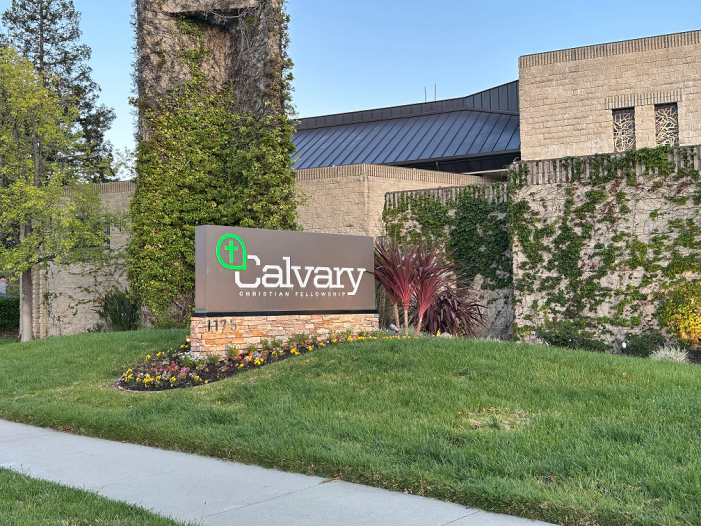California Church Ordered to Pay $1.2 Million for Defying Lockdown Measures

A federal judge has ruled that a California church must pay $1.2 million in fines for defying COVID-19 safety regulations. The San Jose Calvary Chapel was fined earlier this month for not upholding Santa Clara County mask mandates from November 2020 to June 2021. The chapel originally faced $2.8 million in fines, but then countersued the county for violations of religious freedom.1
The church’s attorney, Mariah Gondeiro, stated that the masking orders were unconstitutional because they were not applied equally among all people. The church plans to appeal the most recent court ordered fines, Gondeiro said.2
Santa Clara County Known for Strict Lockdown Enforcement, Excessive Fines
Santa Clara was the first county in the United States to order citizens to “shelter-in-place” in 2020, requiring county residents to remain in their homes unless leaving for government sanctioned “essential” activities, including grocery shopping or going to the hospital. California, specifically Santa Clara, was
known for its strict lockdowns, including one man being arrested for paddle boarding and another man being fined $1,000 for surfing, despite both of them being completely isolated from others outdoors.3In August 2020, Santa Clara created a business compliance unit to investigate violations. Citizens were also encouraged to anonymously report neighbors they believed were in violation of lockdown orders through a website or hotline. Reports of one analysis found that Santa Clara had issued $4.9 million in fines as of March 2021 for pandemic rule infractions. By comparison, six other Bay Area counties combined had collected only $82,000 in related fines.4
Pastor: “God doesn’t want us to isolate ourselves”
Calvary Church initially followed mask orders set in place in March, but by May Pastor Mike McClure said in a sermon:
God doesn’t want us to isolate ourselves. All of us need to be in the sanctuary, I don’t care what they say, I’m never going to close the doors, ever.i
Calvary was the only church in the area to openly defy the lockdown where masking and social distancing were optional and congregational singing continued, despite the U.S. Centers for Disease Control and Prevention (CDC) recommending that communities of faith consider suspending or decreasing group singing to prevent transmission.5 Some of Calvary’s services attracted thousands of attendees.
Santa Clara Officers Spied on Congregation
In March, investigative journalist David Zweig alleged that Santa Clara County government enforcement officers spied on the congregation in various ways, including “tracking the cellular mobility data of churchgoers.”6 7
Zweig’s report shared court documents revealing that enforcement officers made a deal with an adjacent church to use their property as a base camp for surveillance and that county officers conducted stakeouts to observe the congregation through the chain link fence.
Court Documents Reveal Health Officials Used Mobile Data to Track People Attending Church
Court documents also reveal that the Santa Clara County health department hired a research team led by Stanford Law School professor Daniel Ho to analyze cellular mobility data of churchgoers. Ho, who has a background in public health data analysis, was paid $800 per hour and used third-party phone data—a technique known as “geofencing”—to add to surveillance of the those who attended church.
County officials have denied the accusations.7
CDC Purchased Cell Phone Data to Monitor Lockdown and Vaccine Compliance
Surveillance via cell phone tracking has raised widespread concerns about violations of civil liberties. News outlets reported last year that CDC officials used location data from tens of millions of Americans’ cell phones to analyze compliance with lockdown orders and mass vaccination efforts.
In addition to monitoring visits to schools, churches, and pharmacies, the CDC also reportedly tracked peoples’ movement during curfew hours and visits between neighbors. The CDC stated that the surveillance access allowed “deeper insights into the pandemic as it pertains to human behavior.”8
In his Substack report, Zweig stated that the Calvary congregation members he interviewed didn’t have extreme beliefs surrounding COVID, but rather had a different risk-benefit calculation and ultimately felt backed into a corner to a point in which they could no longer comply. Zweig wrote:
The county’s public health orders, which were applied incongruently to different entities, and its enforcement mechanisms raise important legal and ethical issues about government infringements on citizens’ rights related to privacy, assembly, and religion that run well beyond the context of the pandemic and have potential implications for Americans regardless of their religious or political affiliation.6
If you would like to receive an e-mail notice of the most recent articles published in The Vaccine Reaction each week, click here.
Click here to view References:
No comments:
Post a Comment